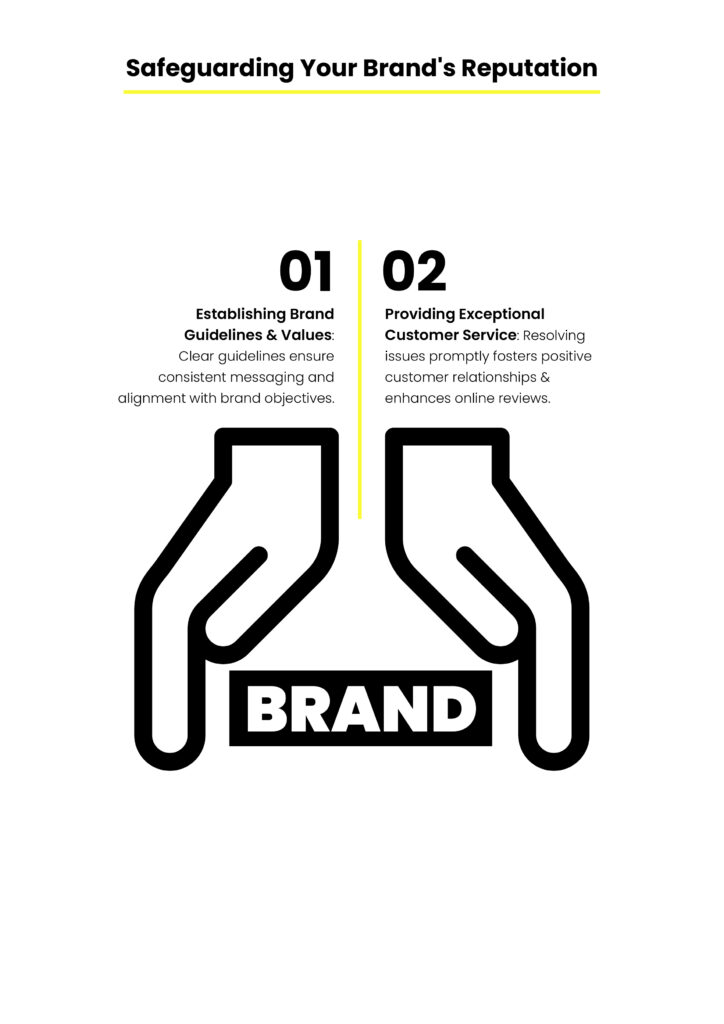Slip-ups in brand messaging and value conveyance making you cringe with the onset of plummeting sales? Online Reputation Management (ORM) holds a hefty punch where this methodology expects due bottom lines into a business’s preventive strategy. While online issues may arise at some point down the advertising funnel, it’s important to divert with fruitful measures that can elevate the integrity of your business’s outcomes.
From discerning protocol, enterprise review hacks and monetary alignment for consumerism value, you could potentially gain momentum in the marketing field with your business’s sales numbers skyrocketing. Organisational silos no longer exist where ultimate convention to preserve brand integrity is paramount. Hence, ORM seeks to cultivate the essence of gaining traction in the market.
This blog will highlight the various strategies that you can use to harness Online Reputation Management (ORM) measures to secure your brand campaigns towards advertising success.
The Impact of Online Reputation
Online reputation profoundly affects consumer trust and loyalty, as potential customers often rely on reviews and ratings to make purchasing decisions. A negative online sentiment can have significant business implications, leading to loss of customers, decreased revenue, and damaged brand reputation.
Elements of Reputation Management
Effectively managing your brand’s reputation entails various essential elements that contribute to maintaining a positive online image and fostering consumer trust. Understanding and implementing these key elements are fundamental steps in building and safeguarding your brand’s reputation in the digital landscape.
- Monitoring Online Mentions and Reviews: Regularly monitoring online mentions and reviews across various platforms allows businesses to stay informed about what customers are saying and address any issues promptly.
- Responding Promptly and Professionally: Timely and professional responses to both positive and negative feedback demonstrate that the brand values customer input and is committed to addressing concerns.
Key Tactics for Reputation Safeguarding

In safeguarding your brand’s reputation, employing strategic tactics is paramount to mitigate potential risks and foster a positive online presence. These tactics are instrumental in establishing trust, enhancing credibility, and ensuring customer satisfaction, contributing to long-term brand success.
- Establishing Brand Guidelines and Values: Clear brand guidelines and values help employees understand the company’s identity and ensure that all communications align with the brand’s reputation objectives.
- Providing Exceptional Customer Service: Exceptional customer service not only resolves issues but also fosters positive relationships with customers, leading to improved online reviews and recommendations.
Utilising Online Tools and Platforms
In the digital age, leveraging online tools and platforms is essential for effective reputation management. These tools enable businesses to monitor, analyse, and engage with online conversations about their brand, helping them maintain a positive online presence and address issues promptly.
- Reputation Monitoring Tools: Utilising reputation monitoring tools allows businesses to track mentions, sentiment, and trends related to their brand across various online channels.
- Social Listening and Engagement Platforms: Social listening tools enable businesses to monitor conversations about their brand, industry, and competitors, allowing for proactive engagement and relationship-building.
Crisis Management and Damage Control
In the realm of reputation management, crisis management and damage control play a pivotal role in preserving brand integrity. When faced with PR emergencies or negative publicity, businesses must have a robust crisis communication plan and respond with grace and transparency to rebuild trust and credibility.
- Developing a Crisis Communication Plan: Establishing a crisis communication plan outlines clear protocols for addressing PR emergencies, minimising reputational damage, and regaining public trust.
- Responding to PR Emergencies with Grace: During a crisis, responding promptly, transparently, and empathetically can help mitigate the negative impact on the brand’s reputation and demonstrate accountability.
Measuring and Analysing Reputation
Measuring and analysing reputation is essential for understanding brand perception and identifying areas for improvement. Tracking key performance indicators (KPIs) and conducting sentiment analysis are critical steps in assessing brand sentiment and monitoring trends over time.
- Tracking Key Performance Indicators (KPIs): Identifying and tracking KPIs such as online sentiment, brand mentions, and customer satisfaction metrics provide insights into the effectiveness of reputation management efforts.
- Sentiment Analysis and Trend Monitoring: Sentiment analysis tools help gauge public sentiment towards the brand, while trend monitoring identifies emerging issues or opportunities that require attention.
Challenges and Solutions
Navigating the landscape of reputation management comes with its fair share of challenges, from fake reviews to legal compliance issues. Balancing transparency while protecting the brand’s integrity poses a significant dilemma for businesses seeking to maintain a positive online reputation.
- Dealing with Fake Reviews and Trolls: Implementing robust review verification processes and actively moderating online communities can help mitigate the impact of fake reviews and malicious comments.
- Balancing Transparency with Brand Protection: Finding the right balance between transparency and protecting sensitive brand information ensures that businesses maintain trust while safeguarding their reputation.
In conclusion, shaping ORM is a strategy that requires constant iteration but is a fundamentally simple marketing science. Where generative queries like brand immersion, attribution, sales and qualitative metrics preserve ORM as a hidden facet, there is a lot of reasoning behind continuous improvement and technological enhancements within the logistics of your brand campaigns.
In essence, effective reputation management is essential for maintaining a positive brand image, fostering consumer trust, and driving business success. By prioritising diligence and proactivity in managing their online reputation, businesses can safeguard their brand’s integrity and thrive in the digital marketplace.